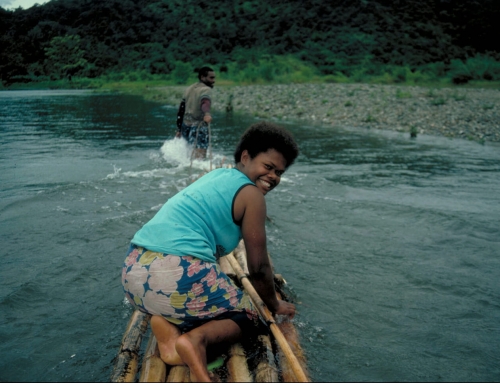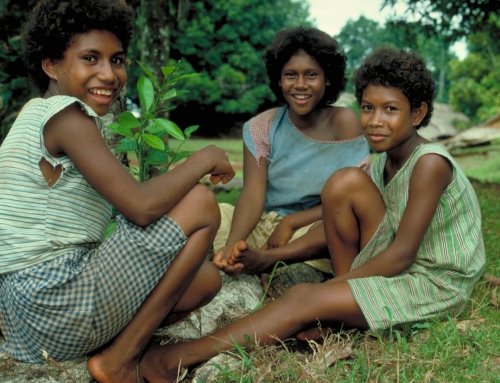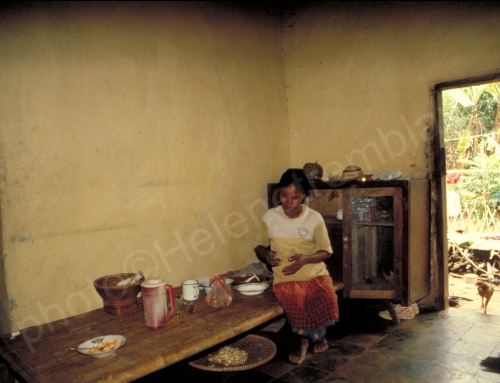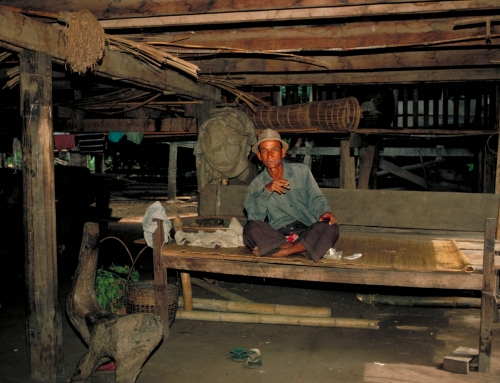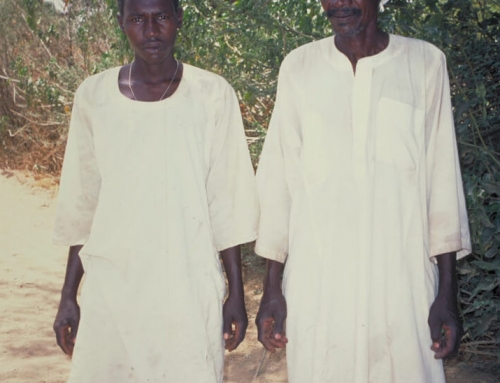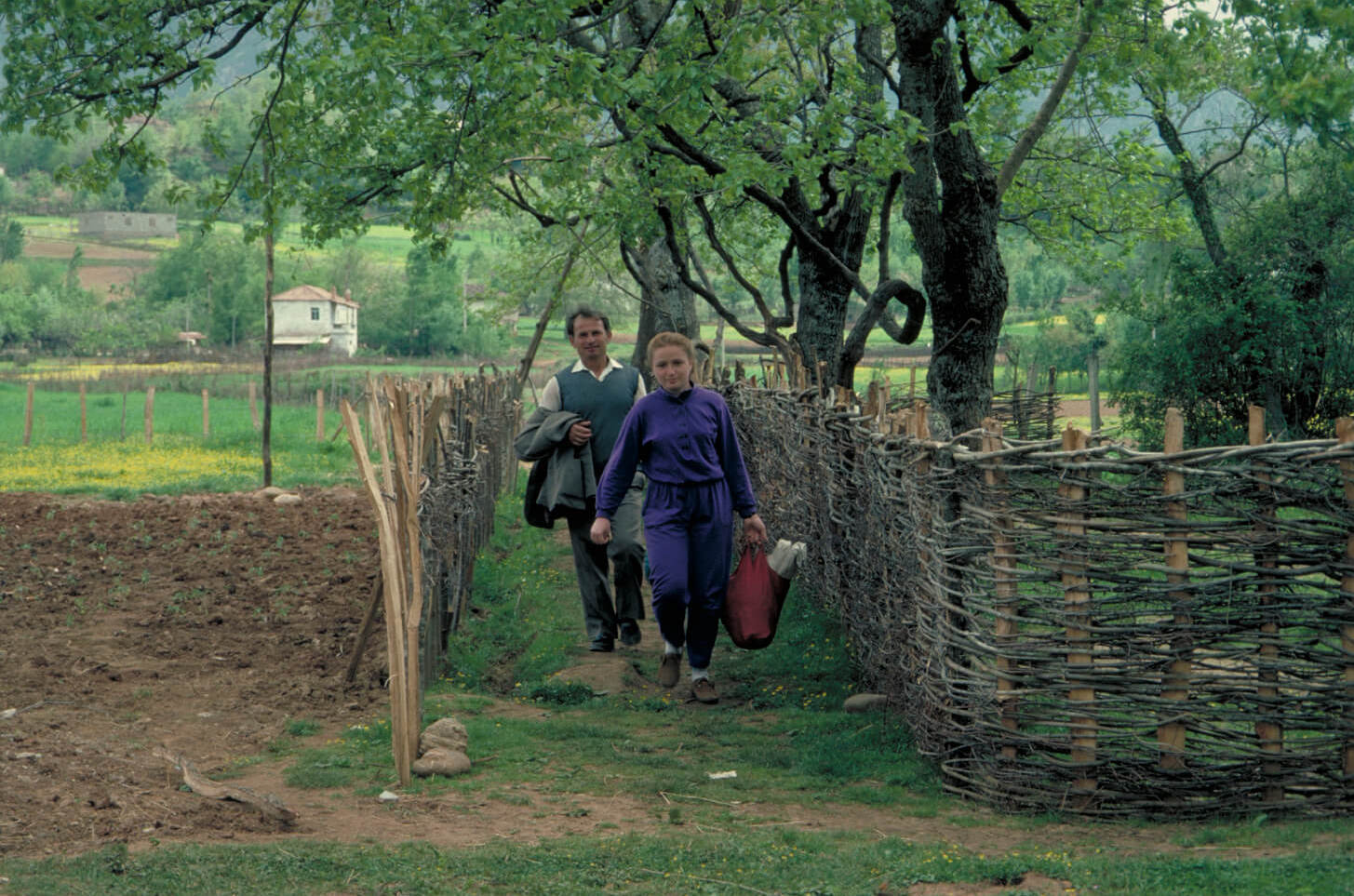
Leaving behind the unemployed
5:00 Buses are waiting, in front of the secondary school and the run down apartment buildings. One will take Nila to the capital, another her uncles to the chrome mine. They will, however, leave behind the unemployed whose number has risen since every day since the fall of communism.
After having spend time with his friends, Ymer walks back the mountain from Klas where he has worked, where he knows people and where he comes every day. He has been promised to pass a contest to teach biology and is waiting. Ymer was respected and imposing as a party member and an agronomist teacher could be in the country and he accepts with difficulty to be a simple farmer. He does not want to be looked like one either. Dressed in his used suit and sweater, he walks the muddy roads his bands in his back always kept up straight. He walks proudly saluting everyone he meets. The old women whose family duties are to keep the sheep. He stops to talk to two men who have just dynamited a big rock and carrying the stones to build their homes. A certain progress, my father had to carry the rock from the river down the valley.” says Ymer.
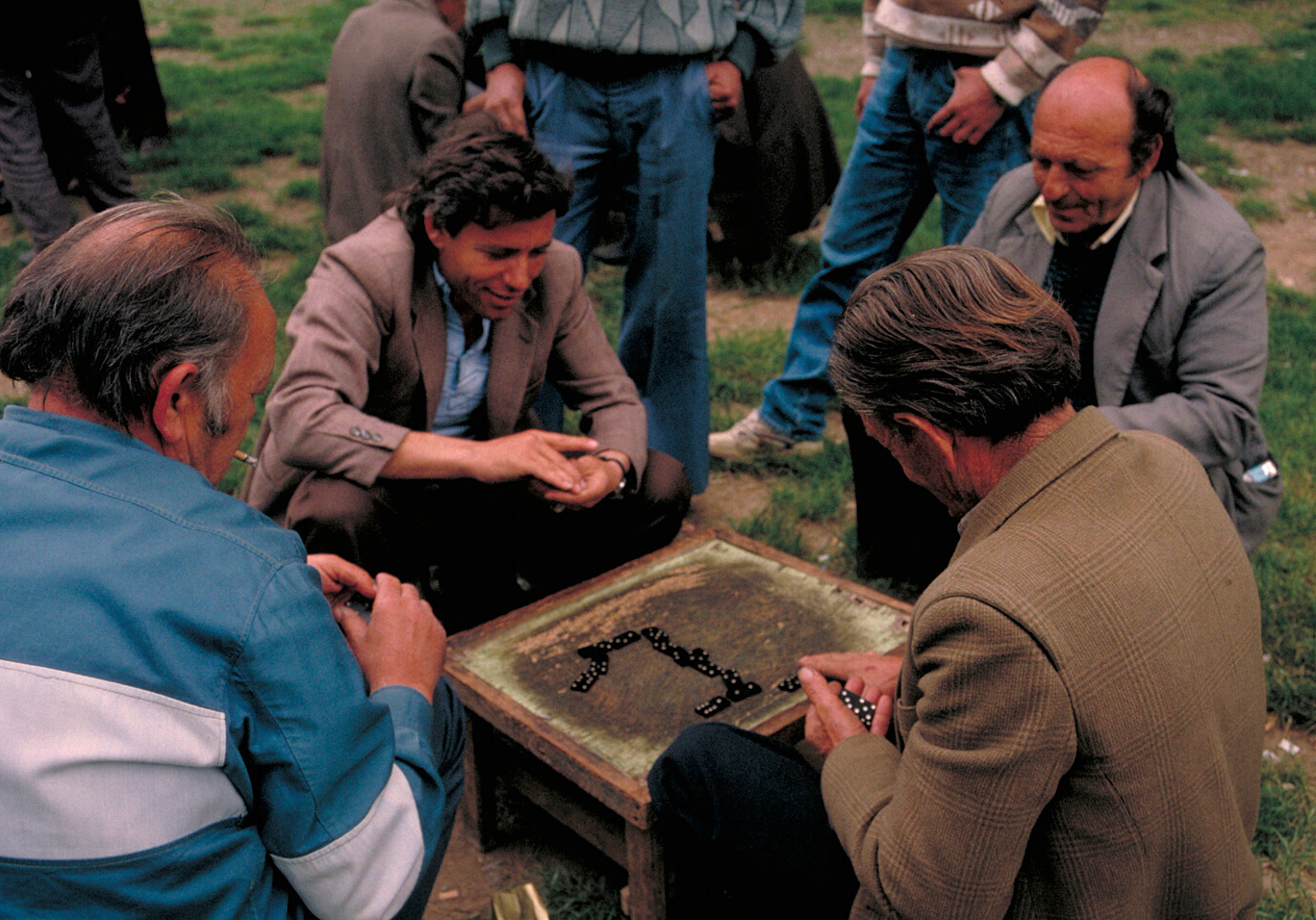
Is there a way to be half communist and half democratic?
Work there is since the house has been turned into a farm for the family to survive. Desi, the village nurse is now a farmer too and before she is ready to service the sick, she must service the animals. Desi is disappointed. To be back in the dirty farm is returning years behind, just like 40 years of her life had been erased. She remembers having to milk the cows when she was ten years old and it something she never wanted to do again.
Desi feels lost and alone. “Beside the sick, I do not meet people anymore like when we all worked in cooperatives.” Is there a way to be half communist and half democratic she and her husband Ymer wonder. In her kitchen, Desi boils water on the small electric burner placed on the floor near the door. She must sterilize the few needles she has. They are old, rusted and have been used for some years now. But vaccinating the children, Desi knows, is necessary.
7:30 Fatmira, a woman from the village, comes with her 10 month baby. Desi is a well reputed nurse. Compassionate and most of all honest she is known for never asking — as many nurses and doctors did — anyone for money in return of her services. “Like everyone, I received my salary from the state,” she explains.
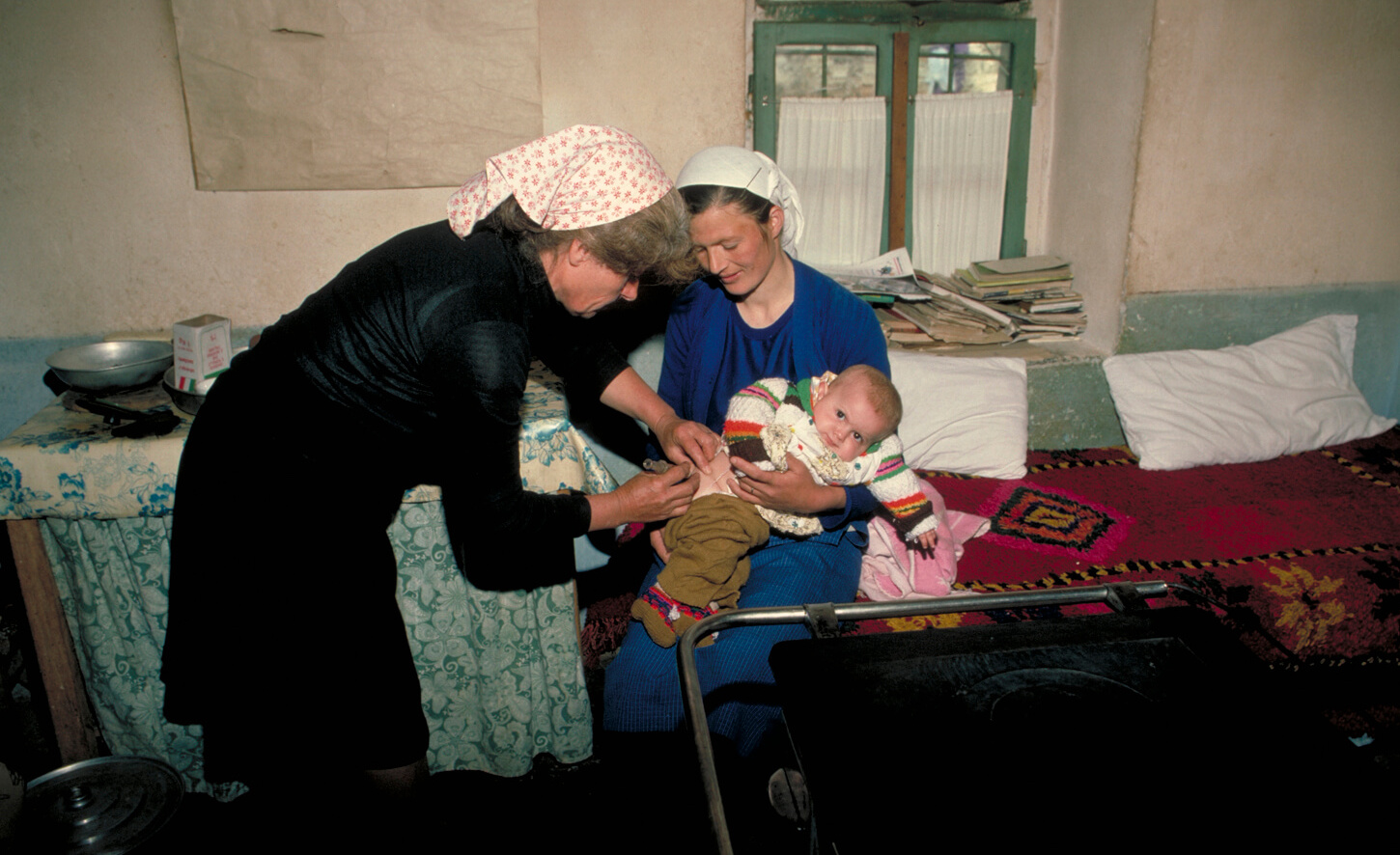
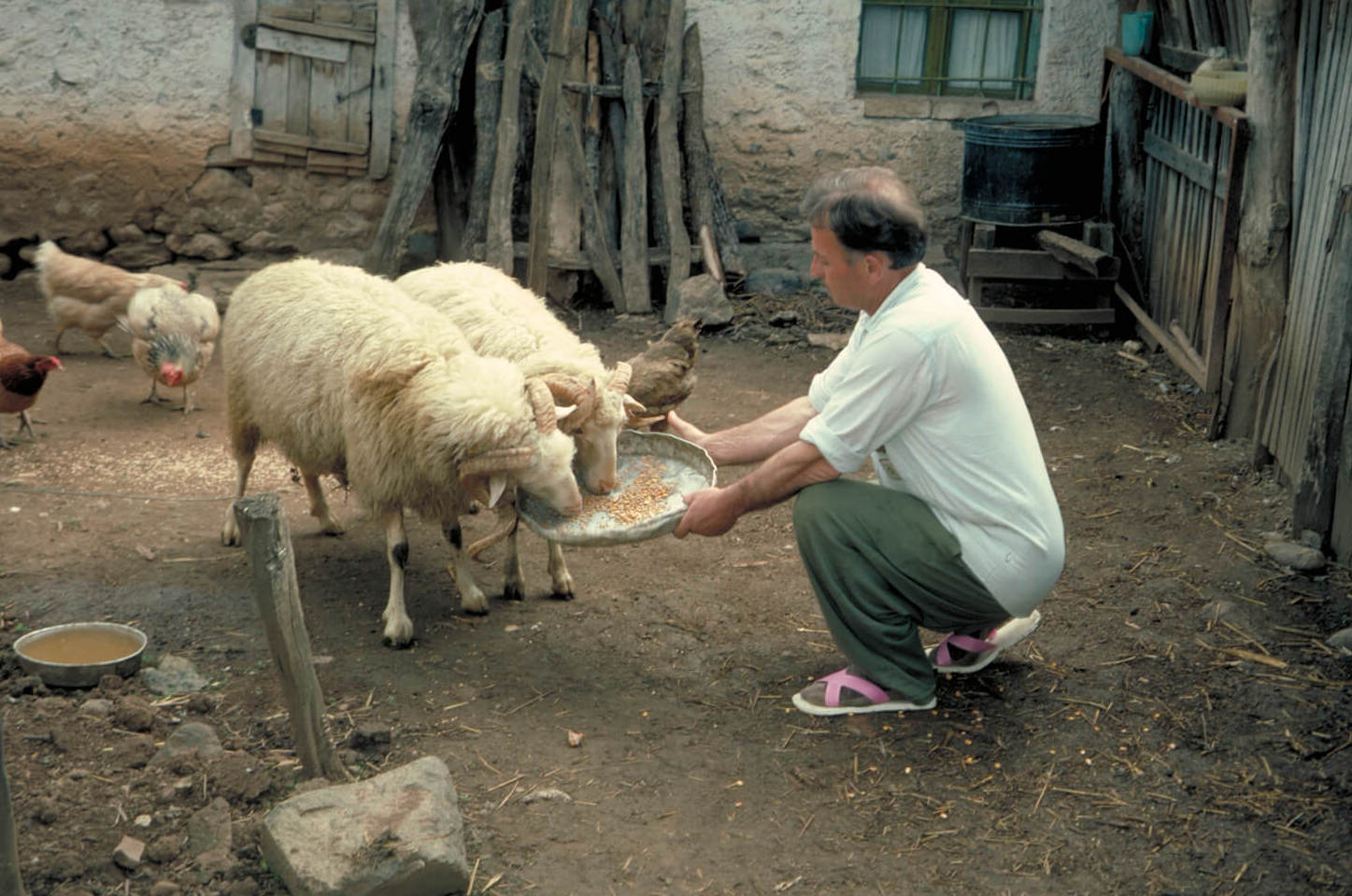
13:00 Desi has set lunch on the table for Ymer and Desi. April and May are the months where there is the less food for her to feed her family. Beside pieces of salted meat and potatoes there is nothing left from the winter stock. The garden is still not producing this year’s food, the bread price has gone up 500% and the lack of sugar made it impossible to have (conserves-jams) through the year. The Mat region is however luckily green and privileged compare to the dry rocky mountains surrounding the valley. Soon summer will come to the rescue and the trees will give the Shahini apples, figs, nuts, raisins, pears, marons, cherries and all the vegetables of the garden.
Ymer is eating his soup watching television, which is always open when he is in the house. He tries the country’ s channel. He can hardly see the image but hears the sounds. “Its all the same politics” Ymer says. “Once again it is all about what the new politicians are doing and this is the same as before when the only thing we were shown were pictures of the great leader. Politicians are waiting their election and Ymer is waiting for nothing at all now that his salary is among the lowest in the world. He however does not know where to place his faith and as disillusioned as his wife he is also angry. Like all, he has been told all his life that the Albanians were among the happiest people in the world, and the most intelligent of the Balkans. He does not accept the defeat to learn that this is untrue and the shame of being pushed aside at his age. Ymer feels hopeless while always busy with house and farm. Desi keeps silent her frustration.
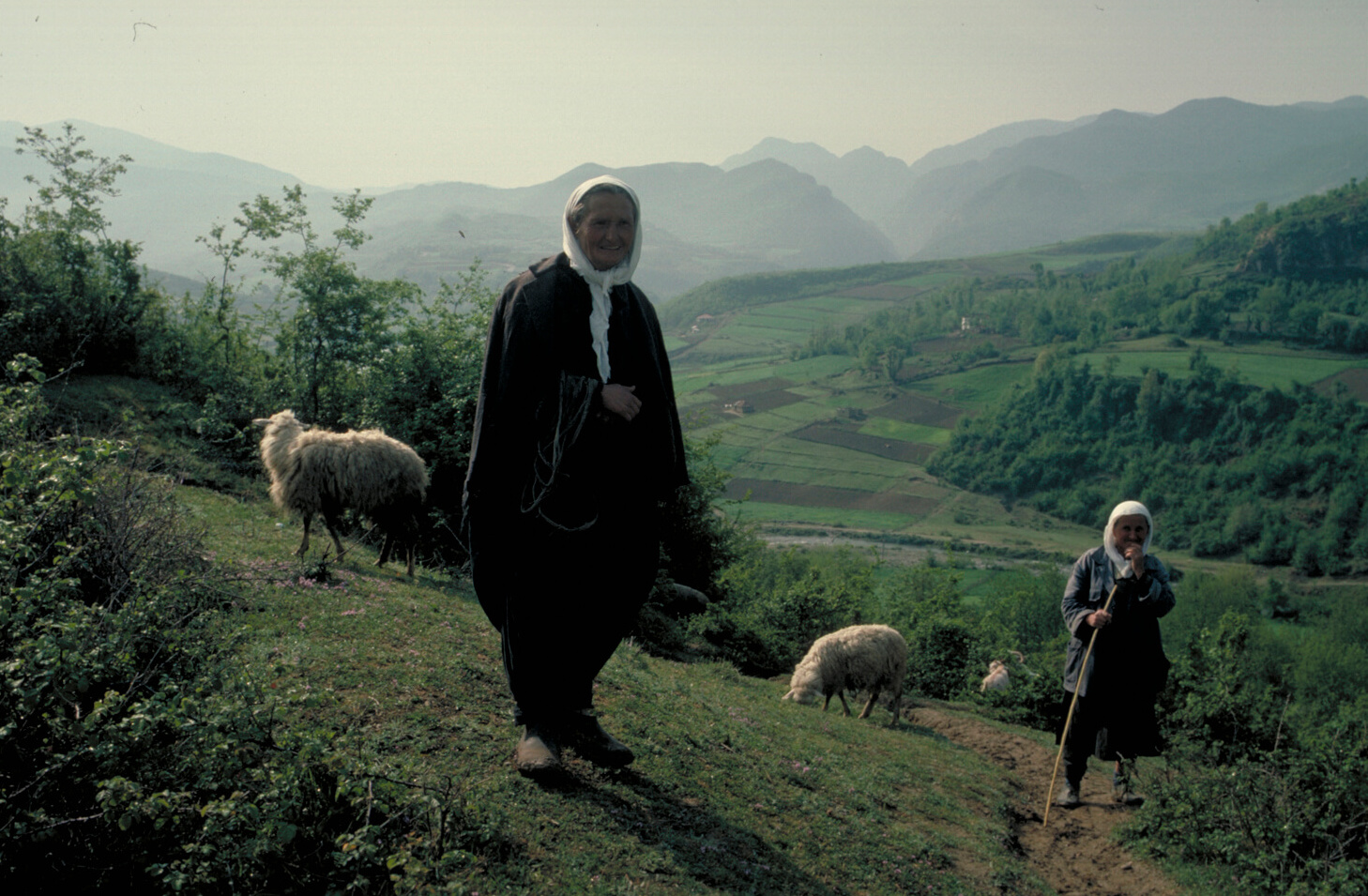
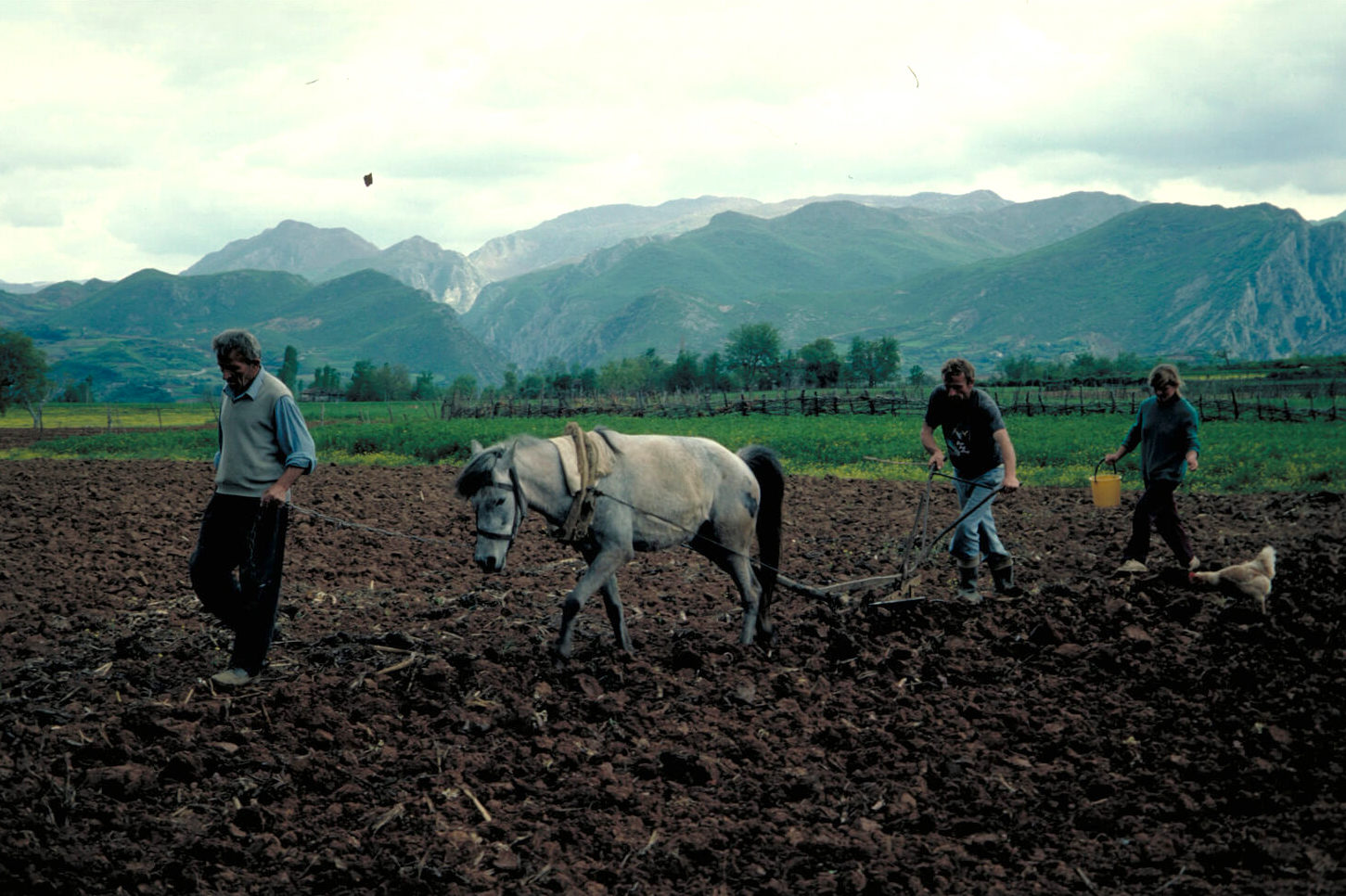
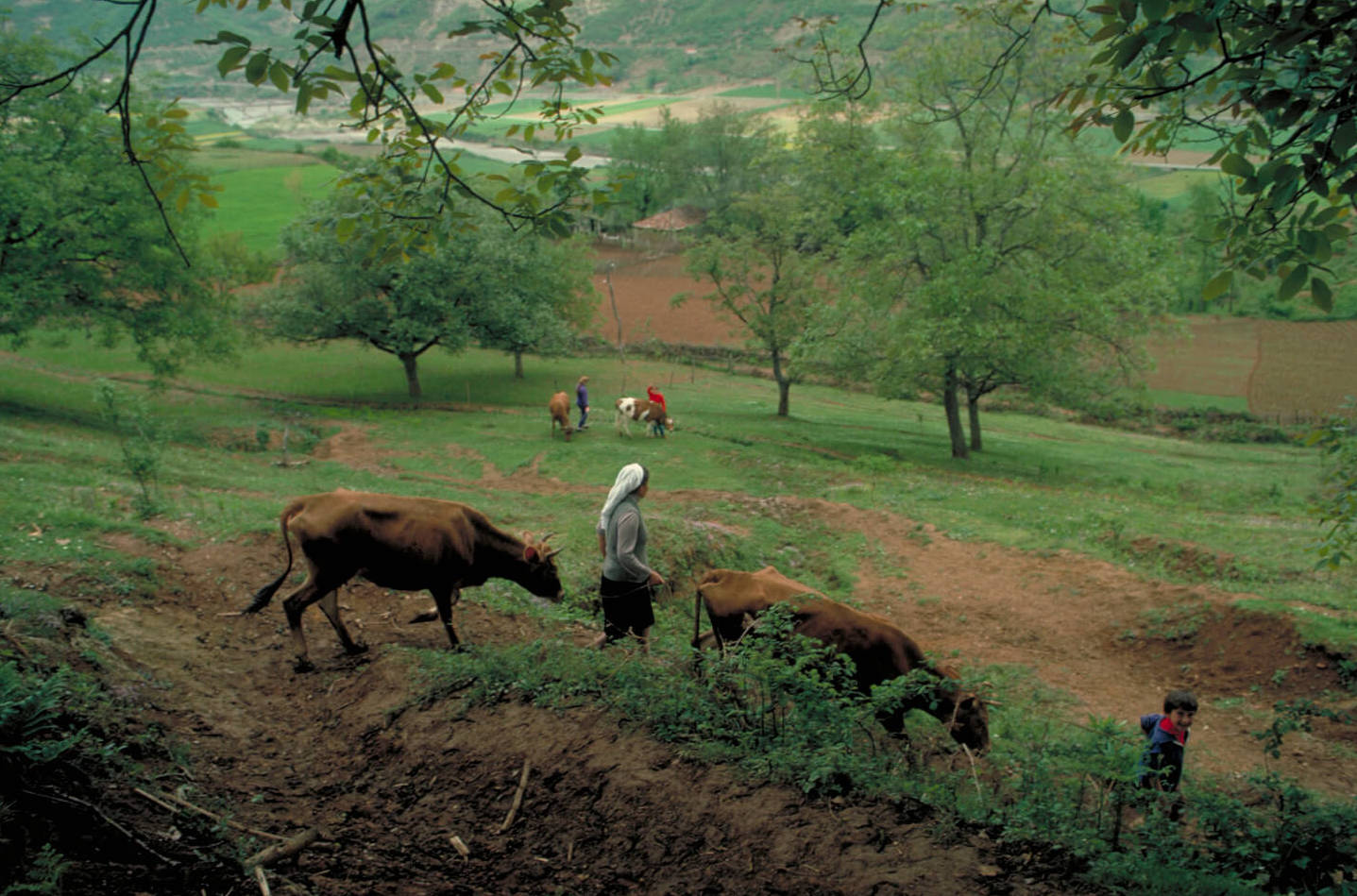
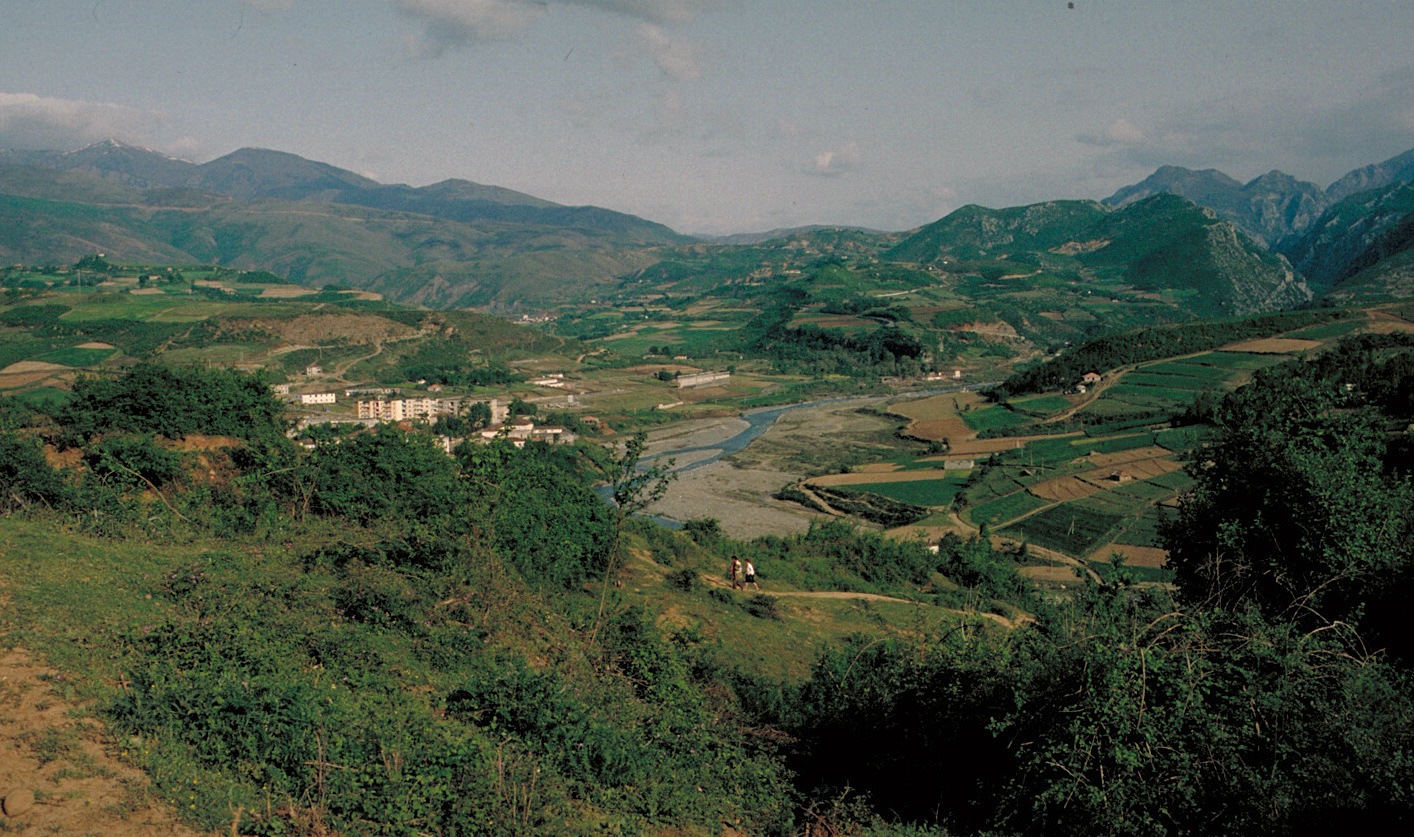
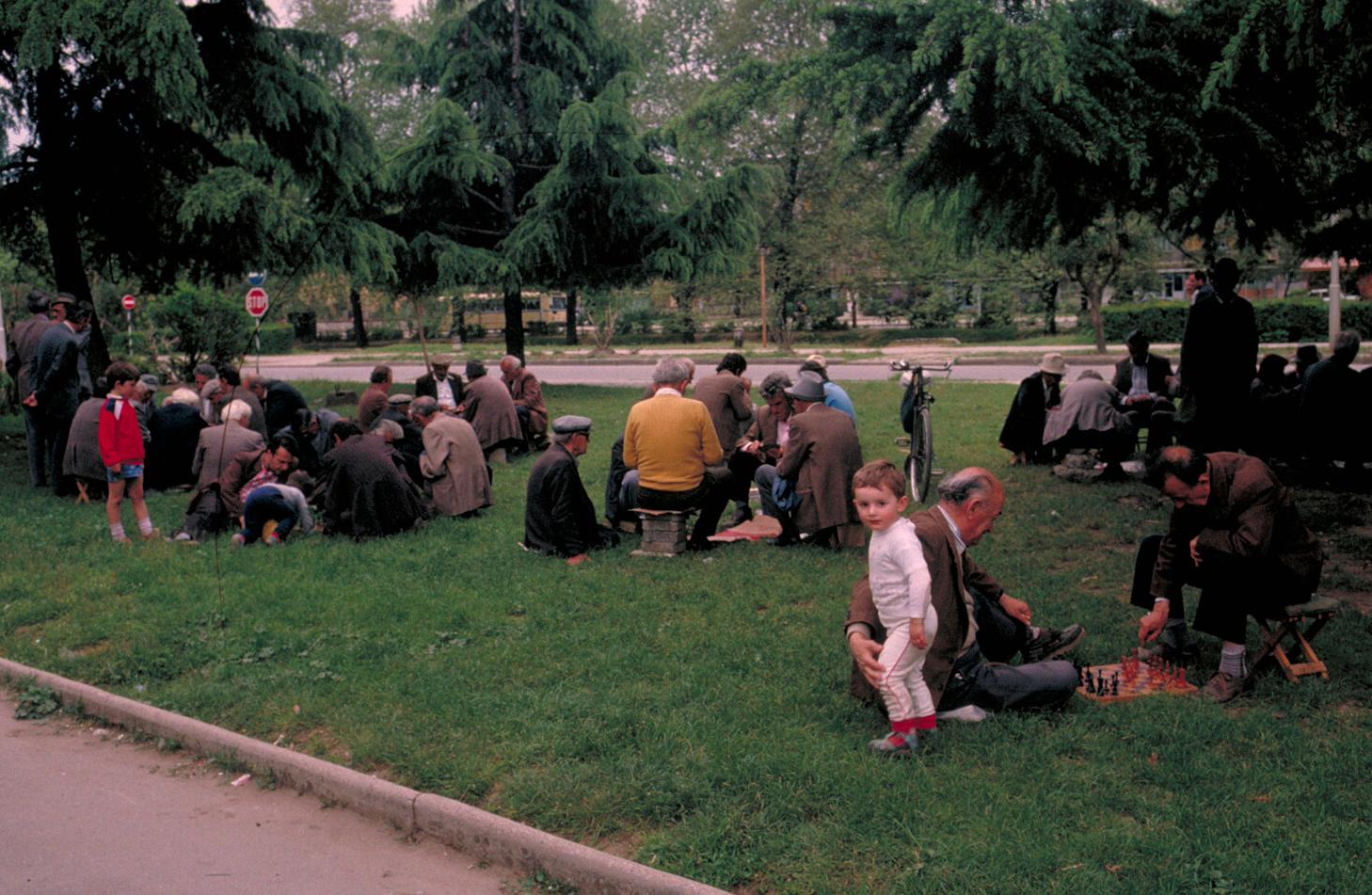
This post-communist policy bas transformed the country site. There were no divisions for the eyes but large big farm. Here in Pllitchet the ambulanca –health center — has been taken over by a family that claims the land it was on is theirs. The bakery has closed and as everywhere in the country the government buildings are now skeletons. This leaves Desi the chair and bed in her kitchen with hardly any resources to service the sick.

